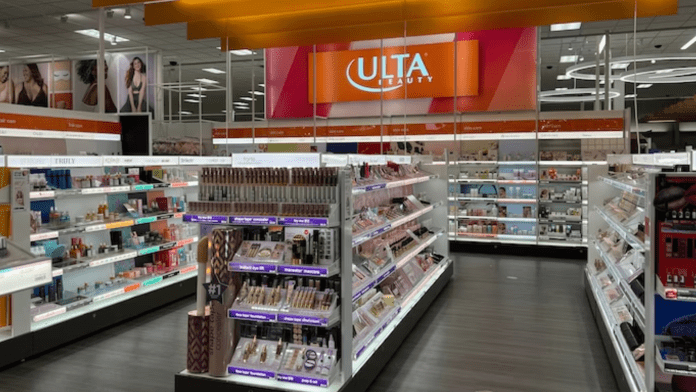On Thursday, Ulta Beauty increased its projected full-year profits and sales, attributing the adjustment to robust demand for premium skincare and fragrances. Additionally, the company announced the upcoming retirement of its longstanding CFO, Scott Settersten, slated for April next year.
After nearly two decades with the company, Scott Settersten will step down, and Paula Oyibo, the current senior vice president of finance who joined in 2019, will succeed him as the new CFO.
Following the company’s outperformance in the third quarter, shares of the beauty retailer surged by 6.6% during extended trading.
Despite increased borrowing costs affecting household budgets, affluent shoppers are prioritizing the indulgence of beauty and skincare products, even as they reduce spending on larger discretionary items such as televisions and apparel.
Ulta has experienced an uplift in consumer interest gravitating towards dermatologist-recommended brands such as La Roche-Posay and CeraVe. Simultaneously, the company has observed strong demand driven by social media promotions of brands like Good Molecules, Hero Cosmetics, and Peach Slices.
In the third quarter, Ulta Beauty witnessed a wave of notable product launches. This included ‘Half Magic,’ a vegan and cruelty-free makeup line created by Euphoria makeup artist Donni Davy exclusively available at Ulta Beauty. Additionally, there were new hair styling tools from Shark Beauty, the dermatologist-recommended PanOxyl, a favored brand among Gen Z, and the emergence of Sniff, an up-and-coming unisex fragrance.
The beauty retailer increased the lower end of its yearly profit projection to a range of $25.20 to $25.60 per share, up from the earlier estimate of $25.10 to $25.60 per share.
The company has also revised upwards the lower range of its annual net sales projection. The new expectation is in the range of $11.10 billion to $11.15 billion, compared to the previous forecast of $11.05 billion to $11.15 billion.
The quarterly net sales of the retailer increased by 6.4% to reach $2.49 billion. According to LSEG data, analysts had, on average, anticipated revenue of $2.47 billion.
After excluding items, the company achieved earnings of $5.07 per share, surpassing Wall Street’s projected profit of $4.95.



